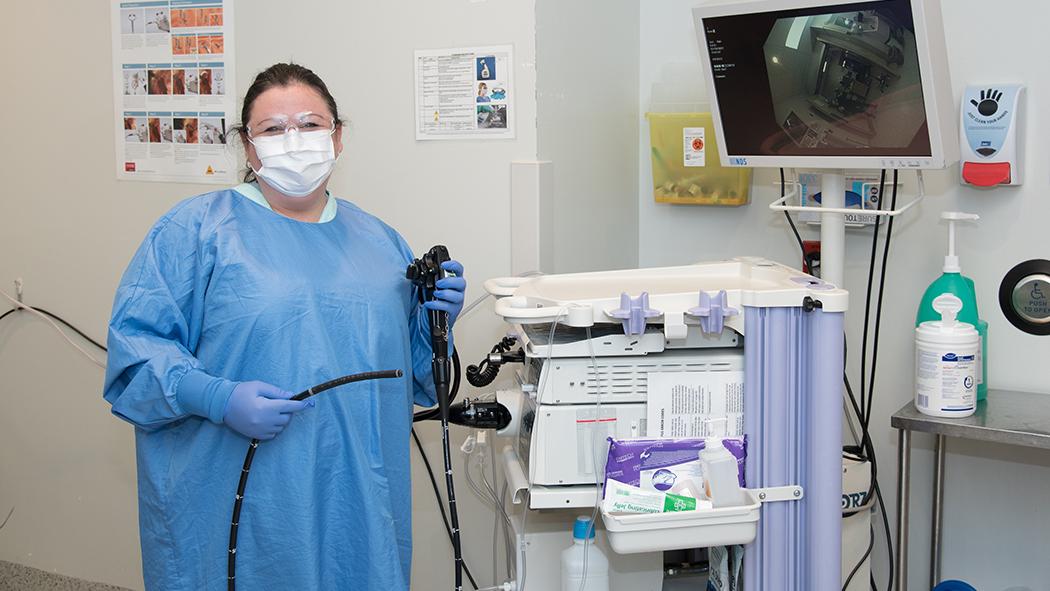
March 31, 2022
March is Colorectal Cancer Awareness Month. Colorectal Cancer (CRC) is the third most common cancer in Canada, accounting for 11% of all cancers. Every day, 68 Canadians are diagnosed with CRC, and 26 Canadians die from it.
LHSC’s Endoscopy Program plays a key role in screening and diagnosing colorectal cancer as part of Ontario's CRC screening program, and in the treatment of pre-cancerous lesions. Early detection is key to improved outcomes. As such, population-based screening is crucial because it can help detect CRC and identify pre-cancerous lesions for removal before they turn malignant. Ontario’s provincial CRC screening program utilizes a non-invasive at home stool test to identify microscopic blood, called the Fecal Immunochemical Test (FIT). Those with a positive FIT test require an urgent colonoscopy, as up to two-thirds of cases will have relevant pre-cancerous lesions (polyps), and 5-7% will have cancer. Approximately 5,000 colonoscopies are performed each year at LHSC, including dedicated slots for FIT positive patients.
Some facts about the LHSC Endoscopy Program:
- Endoscopy is performed at both Victoria and University Hospitals on outpatients and inpatients
- Endoscopy supports multiple medical services including Gastroenterology/Hepatology, General Surgery, Hepatobiliary Surgery, Thoracic Surgery, Respirology, and Pediatric Gastroenterology
- LHSC is a tertiary referral center for advanced therapeutic endoscopy and receives transfers from other hospitals/regions for specialized endoscopic care
- Advanced endoscopic resection techniques for complex pre-cancerous colorectal polyps are performed at LHSC
- LHSC provides emergency after hours endoscopy with the support of a nurse and physician on-call for both sites
- Urgent/emergent cases are most often acute gastrointestinal bleeds or when there is a foreign body in the intestinal tract for removal.
- About 99 per cent of patients are sedated during this procedure – 80 per cent receive conscious sedation, 20 per cent receive deep sedation with the support of anesthesiology
- For both sites, the team consists of about 40 nurses, two charge nurses, a clinical educator, six clerks, four endoscopy aides, the medical device reprocessing technicians, anesthesiology team, and the endoscopy physicians and their medical secretaries.
- The Endoscopy program supports trainee education including all levels of residents and fellows
When to get screened:
- Anyone between the ages of 50-74 can get screened with the FIT test
- Certain people at higher risk for colorectal cancer may benefit from having screening colonoscopies instead of FIT
- Speak with your primary care provider to see which test is most appropriate for you